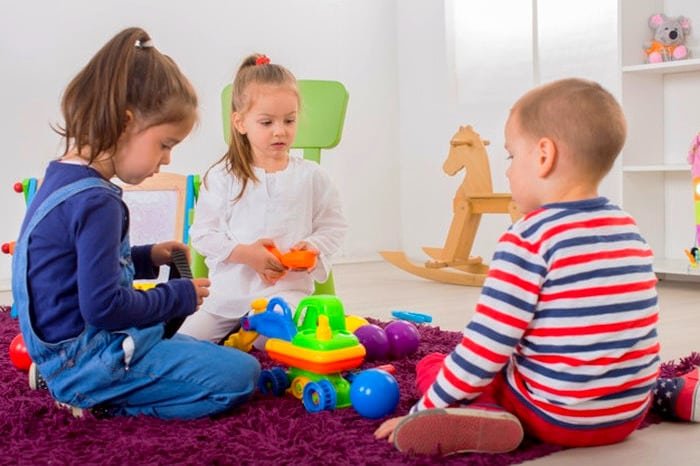Getting to KnowMiddle Child Syndromeor Second Child Syndrome
For many years, people have believed that middle children do not receive as much attention as their older and younger siblings, potentially leading to challenges in their lives. It’s important to create a different environment at home.SelMagzHere, we will discuss Middle Child Syndrome or Second Child Syndrome and provide you with the symptoms and solutions.
What is Middle Child Syndrome?
Middle Child Syndrome occurs when the middle child is significantly affected by the presence of their siblings, often resulting in the family giving most attention to the youngest child and assigning responsibilities to the eldest, leaving the middle child with minimal attention and responsibility. Children in this position often feel overlooked and suffer because of it.

Do children suffer from Middle Child Syndrome?
Not all middle children are affected by this syndrome. However, parental behavior towards the first child greatly influences the second child. In a household where parents pay equal attention to all children, this syndrome is less likely to occur.
Symptoms of Middle Child Syndrome orSecond Child
A middle child or second child may show symptoms of Middle Child Syndrome, and by examining these signs, you can better understand their situation.
Jealousy and Low Self-esteem
Middle children or second children oftenhave low self-confidencecompared to the older sibling and usually face more challenges. You might inadvertently tell the second child to learn from the elder, which creates jealousy and makes their situation tougher. Avoid comparing your children under any circumstances, as it can lead to resentment and jealousy between them while also reducing their self-esteem.
Feeling Aimless

Middle children often lose their path in life, as attention is primarily on the oldest and youngest. This confusion makes them more focused on others’ behaviors, leading to a lack of clear goals and a decline in social skills.
Feeling Like There Are No Expectations
Since they rarely hear words of appreciation from their parents or feel loved, they may believe their parents have no expectations of them, causing them to think they are not good at anything and feel a significant lack of responsibility.
Characteristics of Middle Child Syndrome
In this situation, recognizing the symptoms and characteristics will help you understand this issue better, including:
Crying Out for Affection
Your middle child may not respond to your love and affection as an eldest child would. You might think the youngest needs more attention, but that’s a mistake. Middle children often feel dissatisfied with the love they receive and must cry out for affection. Aim to spend at least 10 minutes each day alone with each of your children to listen to their thoughts.
Seeking Your Attention
If your middle child undergoes this syndrome, they will likely ask many questions. They often rely on you for help with everything and may not perform tasks independently, seeking your attention at all costs.
Hate Comparisons
When you compare your children, you are making a significant mistake. Avoid this at all costs. The second child is usually more vulnerable to psychological harm, and if ignored, the situation can worsen. By neglecting their motivations and achievements, they may feel unmotivated, and comparisons can exacerbate their feelings.
Introverted or Extroverted
Low self-esteem may partly arise from a lack of parental attention. These children often have lower confidence, are shy, avoid social situations, and may continuously struggle with irritability, restlessness, and
anxietyin their lives.Unhealthy Sibling Rivalry

Unhealthy sibling rivalry is a common experience that occurs when parents do not provide sufficient attention to their children equally, which
creates negative feelingsamong siblings and leads them to constantly seek to outdo one another.Triggers of Middle Child Syndrome
Certain behaviors may trigger this syndrome and further harm your child. Here are some common triggers.
Identity Crisis
If your child feels that they do not receive adequate attention from you and think their identity is an issue, this situation will certainly worsen.
Lack of Family Support
If a child does not receive enough support from their family, the intensity of their syndrome will escalate, and they will perceive even less attention over time, making their circumstances harder.
Does Birth Order Affect a Child’s Personality?
No. Birth order does not influence a child’s personality, but the way we interact with each child significantly impacts them, leading to different behaviors among siblings.
Solutions for Middle Child Syndrome or Second Child
The best solutions recommended by experts include:
Consider the Needs of Each Child
As mentioned earlier, comparisons can hinder your children’s development. It’s important to set aside these comparisons and recognize and attend to your children’s individual needs.
Avoid Overattention

While it’s vital not to let your child feel neglected, excessive attention can have negative effects. It’s important to find a balance.
Be a Listener, Not a Judge
Listen to what your child says without judgment. Try to hear them like a friend and support them without blaming or advising.
Let Them Be Different
We are all unique, even within the same family. Just as you differ from your siblings, your child is unique too. Avoid expecting them to be just like their siblings. Allow them to explore new things along with their differences.
Support Them
Help your child understand they are special and guide them through experiences of both success and failure. Make sure to be there for them in all situations.
Tell Them They Are Unique
Actively show each of your children that they are unique and possess capabilities that nobody else does, allowing them to achieve great things.
Help Them Love Their Siblings
Middle children often miss out on this affection, but you should teach them that their siblings are just like them and help them cultivate love for each other.
Teach Sharing

If your child spends a lot of time with you, encourage them to overcome their fears. Teach them to connect with you and others and share their life and interests with those around them.
Positive Behaviors of Middle Children
If treated well, middle children can exhibit positive traits, including:
Calming Presence
A middle child often understands how their older and younger siblings will react, allowing them to maintain balance and foster calmness while considering both perspectives.
Competitive Nature
Middle children typically possess a more competitive spirit, striving to prove their worth, which can lead them to achieve great things.
Diplomatic Skills
Due to their calm demeanor, middle children can become effective diplomats, unafraid of resolving various conflicts, and they can support the growth of others.
Adaptable
Middle children learn to be adaptable due to witnessing the different traits of their siblings, helping them adjust better to various situations.
Child Play







